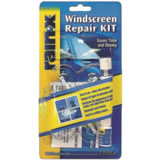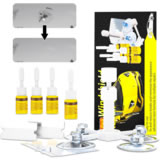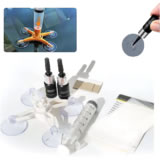Obstructed windshields, cracked windshields, windshield replacement and other laws and regulations are different for every state. Cracked windshield laws in Virginia prohibit driving vehicles where driver’s view of the road is obstructed.
Can I drive with a cracked windshield in Virginia?
Virginia laws have detailed restrictions on the size and type of cracks allowed on windshields:
- Scratches greater than 6 inches by ¼ are not permitted in area cleared by windshield wipers
- Any cracks larger than 1 by ½ inches in diameter may not be above bottom three inches of the windshield
- Multiple cracks from the same area where any is greater than 1 to ½ inches long are not permitted
- Multiple cracks starting from a star crack above bottom three inches of the windshield are not permitted.
Virginia laws also prohibit driving while having impaired or obstructed view of the road. No stickers or other objects may be attached to car windshields which prevent clear view of the road.
Other laws and regulations:
- Obstructed windshield regulations: No sign, poster, or other non-transparent material is allowed on windshield unless required by law.
- Replacement windshields: Replacement windshield glass must be of the same kind and quality, and any repairs should restore vehicle to its original state.
- Windshield wipers: Vehicles must be equipped with windshield wipers in good working conditions. Cracks that prevent wipers from operating correctly may be illegal.
Federal cracked windshield regulations
Federal regulations require drivers to have a clear vision of the road. Windshield cracks or chips smaller than ¾-inch in diameter are permitted if they are not located within 3″ of another crack.
Any cracks or chips or other damage which can potentially obstruct clear view of the road must not be within critical vision area, defined as area directly above the steering wheel, two inches from the top and one inch from sides.








